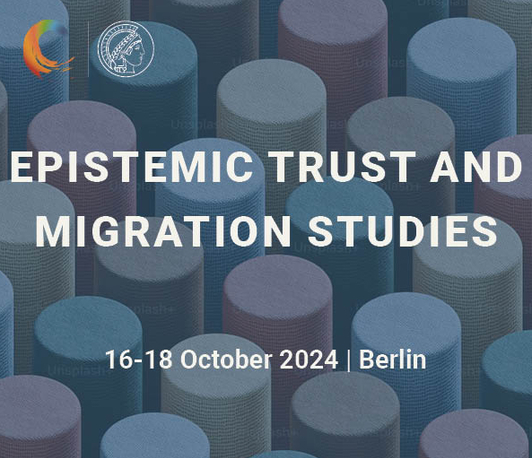Epistemic Trust and Migration Studies
Workshops, conferences 2024
- Start: Oct 16, 2024
- End: Oct 18, 2024
- Location: Berlin

- by invitation only -
While migration, immigration, and emigration have intermittently been subject to political use (and abuse), nowadays their politicization appears to have reached a global apogee. The subject brings into relation all continents and all other designations of place–– North and South, East and West, rural and urban––as well as designations of status and subject positions, such as e.g. rich, poor, labor, refugee, settler, race, ethnicity, gender, age, health status and religious affiliation. Making explicit these relations simultaneously hardens some of the differences between countries of immigration and those of emigration while also mixing and melting others. Although the scholarship about migration is voluminous and growing, there is considerable confusion about the mutual intelligibility of approaches and findings, as well as over the modes of interpretation of produced data-sets. So far there have been few attempts to selectively compare various methods, and accordingly their epistemic frameworks, used to generate the facts upon which this politicization is based.
This conference (and proposed volume) gathers several generations of scholars to make explicit the methodologies and epistemic frames they employ to reveal the ‘facts’ of migration and interpret them. We propose to explore how migration is studied or has been studied over the last half century, what innovations have proven generative and what have not, and how these facts have lent themselves to or resisted politicization. We are particularly interested in how specific epistemological and methodological claims articulate with and prejudice findings in their wider circulation and application (e.g. some research is necessarily ignored by administrative practices and imperatives). We are further interested in how the locations of research (e.g. landscape, state structure, ‘culture’ and social structure) as well as backgrounds of researchers reflect in methods and methodology and if/how, in making these visible, a further layer of possible interpretation can be added. Finally, our goal is to put different methodological paradigms in conversation with one another, in order to explore yet undiscovered productive overlaps that will further our appraisal of the lives of people on the move.